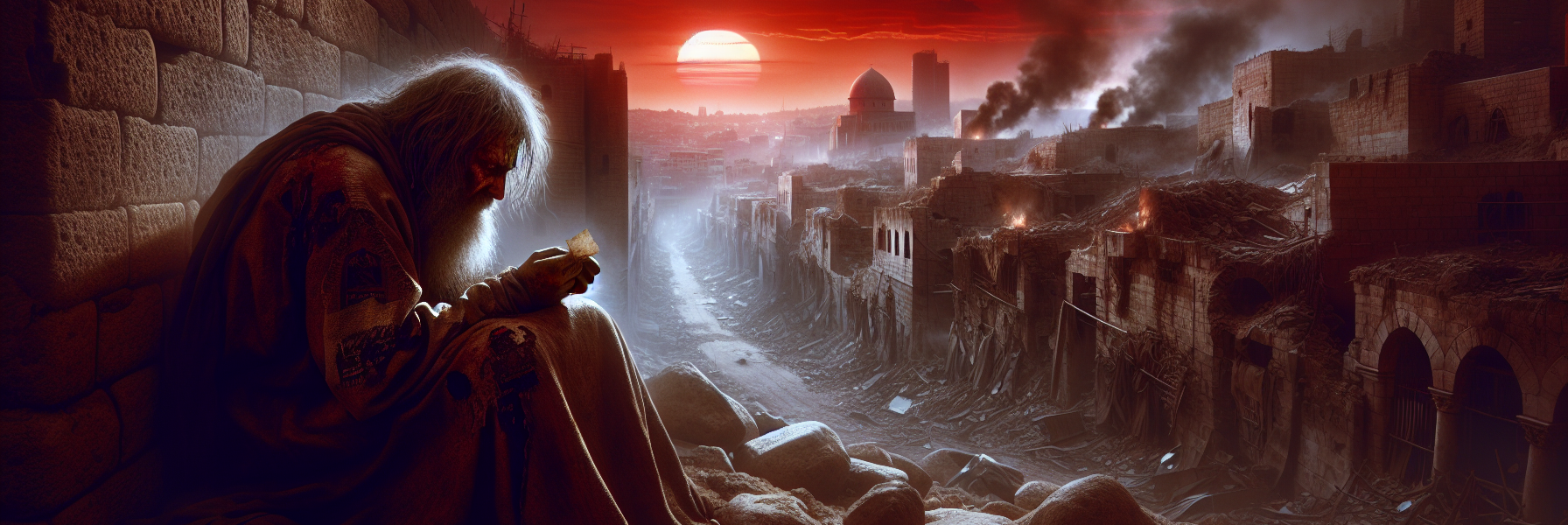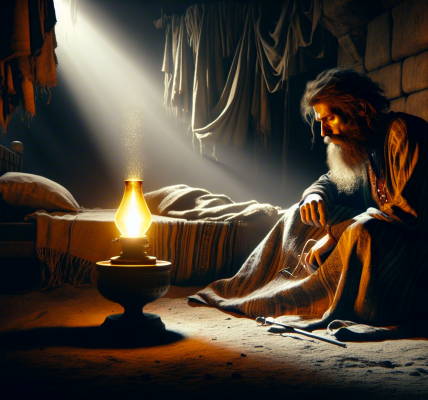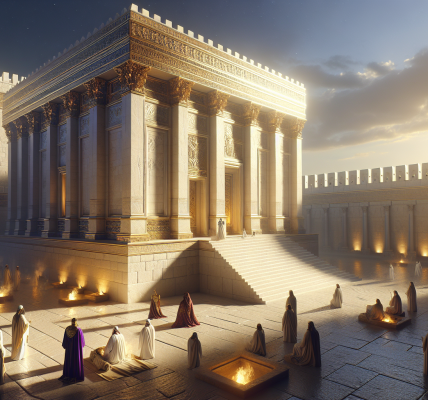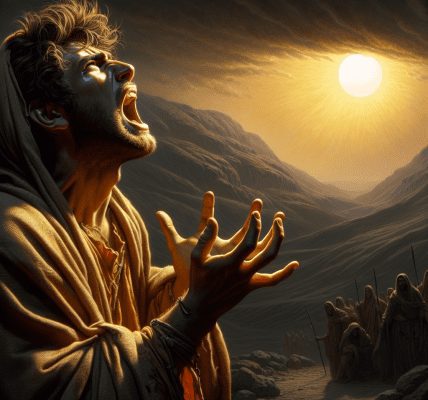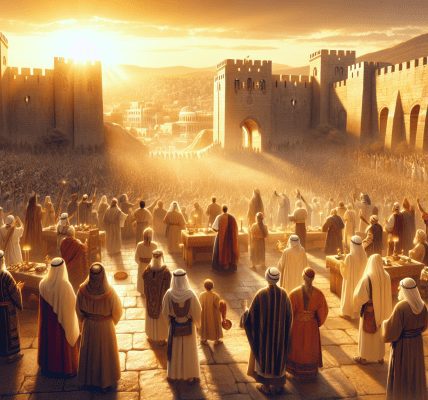**The Weeping Prophet: A Story of Lamentations 3**
The sun hung low over Jerusalem, a dim, blood-red orb sinking behind the shattered walls of the city. Smoke still curled from the ruins of the Temple, its once-glorious stones now blackened and broken. The streets, once bustling with merchants and pilgrims, lay silent except for the occasional wail of a grieving mother or the hollow cough of a starving child. The Babylonian siege had ended, but the suffering had only deepened.
Amid the rubble sat a solitary figure—Jeremiah, the weeping prophet. His cloak was torn, his face streaked with dirt and tears. The weight of God’s judgment pressed upon him like a millstone, and yet, in the depths of his despair, a flicker of hope refused to die. He reached for a scrap of parchment, his fingers trembling as he dipped his quill into a small pot of ink. The words of Lamentations 3 poured from his soul like a river of sorrow and faith.
### **The Hand of God’s Wrath**
*”I am the man who has seen affliction under the rod of His wrath,”* Jeremiah wrote, his quill scratching against the rough surface. He remembered the horrors of the siege—the hunger so fierce that mothers boiled their own children for food, the once-proud nobles now scavenging like dogs in the ruins. He had warned them for decades, pleaded with them to turn from their idolatry and injustice, but they had mocked him, imprisoned him, and now… now they reaped the whirlwind.
*”He has driven and brought me into darkness without any light,”* he continued. The darkness was not just the absence of sun but the absence of God’s favor. The Lord had turned His face away, and Jeremiah felt it like a physical blow. Yet even in this despair, he knew—this was not the end.
### **The Steadfast Love of the Lord**
Then, as if a shaft of light pierced the gloom, his words shifted. *”But this I call to mind, and therefore I have hope: The steadfast love of the Lord never ceases; His mercies never come to an end. They are new every morning; great is Your faithfulness.”*
Jeremiah lifted his eyes from the page, gazing at the ruins around him. Yes, the city was destroyed. Yes, the people were exiled. But God was still God. His love was not fickle like man’s; it endured beyond judgment. The prophet’s heart swelled with a quiet conviction. *”The Lord is my portion,”* he wrote, *”therefore I will hope in Him.”*
### **The Discipline of the Lord**
He thought of the survivors—those who had been dragged away in chains to Babylon, those who remained in the wasteland of Judah. To them, he would send this message: *”The Lord will not cast off forever. Though He brings grief, He will show compassion according to the abundance of His steadfast love.”*
God’s discipline was severe, but it was not without purpose. Like a father correcting a wayward child, the Lord’s strokes were measured, designed to restore, not to annihilate. Jeremiah clenched his fists, feeling the resolve harden within him. He would keep preaching, keep reminding the remnant—*repentance was still possible. Restoration was still promised.*
### **A Call to Return**
The prophet stood, his legs unsteady from days of fasting. He raised his voice over the ruins, crying out to the few who remained:
*”Let us test and examine our ways, and return to the Lord! Let us lift up our hearts and hands to God in heaven!”*
Some turned toward him, their eyes hollow but flickering with something—was it recognition? A spark of faith? Jeremiah pressed on. *”You have taken up my cause, O Lord; You have redeemed my life.”*
The sun had fully set now, and the cold night air bit at his skin. But within him burned a fire—the unshakable truth that even in judgment, God was just. Even in wrath, He was merciful. And one day, when the people turned back to Him with weeping, He would lift them up again.
Jeremiah rolled up the parchment, clutching it to his chest. The road ahead was long, the exile would last decades, but the word of the Lord was sure.
*”The Lord is good to those who wait for Him, to the soul who seeks Him.”*
And so, the weeping prophet waited, his lament a song of sorrow and hope, a testament to the faithfulness of God in the darkest of nights.
